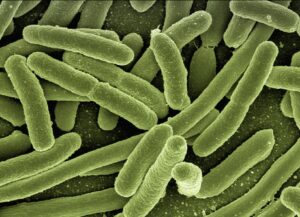
New research reveals that reducing your daily salt intake by just one teaspoon can have a remarkable impact on lowering high blood pressure, comparable to the effects of medication. In one of the largest studies of its kind, conducted by investigators from Northwestern University Feinberg School of Medicine and Vanderbilt University Medical Center, it was discovered that around 70-75% of participants, regardless of whether they were already taking medication for high blood pressure, experienced a decrease in blood pressure when they reduced their sodium intake by approximately one teaspoon per day.
The reduction in systolic blood pressure (the first number in a blood pressure reading), averaging about 6 millimeters of mercury (mm Hg), was similar to the effects of commonly prescribed initial medications for high blood pressure. High blood pressure is a global health concern linked to heart failure, heart attacks, and strokes due to added stress on arteries.
The study involved 213 participants aged between their 50s and 70s. They alternated between following a high-sodium diet (2,200 milligrams per day in addition to their regular diet) and a low-sodium diet (500 milligrams total per day) for a week each. Monitoring their blood pressure and collecting urine samples, the researchers found that 72% of participants experienced lower systolic blood pressure on the low-sodium diet. Compared to their regular diets, systolic pressure dropped by 7-8 mm Hg on the low-sodium diet compared to the high-sodium diet and by 6 mm Hg compared to their usual eating habits. Remarkably, the blood pressure-lowering effect was consistent across all participants, regardless of their initial blood pressure levels and medication use.
These findings underscore the importance of reducing sodium intake to improve overall health. Dr. Cora Lewis, professor and chair of epidemiology at the University of Alabama at Birmingham, highlighted the potential public health impact of these dietary changes, considering the widespread prevalence of high blood pressure worldwide. Notably, the low-sodium diet used in the study included readily available products, making it a practical option for individuals seeking to enhance their health through dietary modifications.
This groundbreaking research, published in the Journal of the American Medical Association, reinforces the significance of reducing sodium intake for effective blood pressure management. With high blood pressure being a major health concern, cutting back on salt in your diet could significantly improve your health and well-being. Remember that while the daily recommended sodium limit for those over 14 years old is approximately 2,300 milligrams, the American Heart Association suggests aiming for less than 1,500 milligrams per day for optimal heart health.






